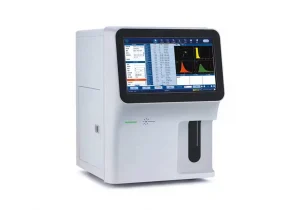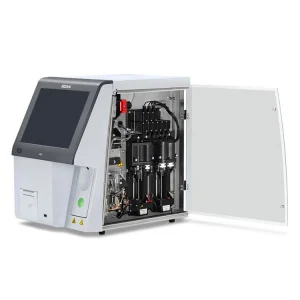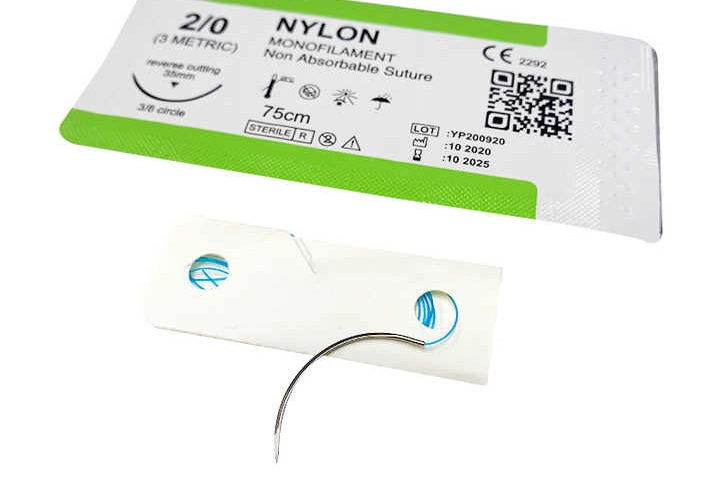
Understanding Automated Blood Analyzers
Definition and Purpose
Automated blood analyzers are medical tools created to examine blood samples with minimal human involvement in the process for clinical laboratory needs. These devices play a role, in diagnosing different medical conditions by swiftly delivering precise and reliable results. The main goal of utilizing an automated blood analyzer is to simplify blood testing procedures and enable healthcare providers to gather accurate data.
Components and Functionality
A typical automated blood analyzer comprises essential parts like a system for handling samples to process blood samples effectively and efficiently; a detection unit that uses advanced technologies to analyze various parameters in the blood such as cell counts and biochemical markers; and a data processing module that interprets the findings and displays them in an easily understandable format, for healthcare professionals.
Technological Advancements in Automated Blood Analyzers
Innovations in Design and Efficiency
In times advancements have greatly improved the efficiency and layout of automated blood analyzer devices produced by manufacturers seem to prioritize creating smaller units that take up less space yet deliver top-notch performance levels a prime example of this shift is the portable anesthesia machine that boasts full functionality in a compact and easily transportable form likewise modern automated blood analyzers have become more effective handling multiple samples at once without sacrificing accuracy.
Integration with Digital Technology
The adoption of technology has transformed automated blood analyzers significantly. These machines now come equipped with connectivity capabilities that enable effortless integration with health records (EHRS). This shift to digitalization guarantees that test findings are promptly synced with medical records minimizing the chances of manual input mistakes and improving data availability, for healthcare professionals.
Key Benefits of Automated Blood Analyzers
Enhanced Accuracy and Precision
One of the most significant benefits of automated blood analyzers is their ability to deliver enhanced accuracy and precision in test results. These devices utilize advanced detection technologies that minimize human error, ensuring reliable outcomes. For instance, an electrolyte analyzer is a specialized medical device designed to measure the concentration of electrolytes in a biological sample, demonstrating the precision these machines offer.
Increased Throughput and Speed
Automated blood analyzers play a role in clinical labs by boosting efficiency and speeding up testing procedures significantly. They can process several samples swiftly to aid in prompt diagnosis and treatment decision-making. Similarly, electric aspirators provide a user alternative to manual devices such, as bulb syringes showcasing how automation improves the overall effectiveness of medical tools.
Using these progressions in lab environments doesn’t just make operations more efficient. Also boosts patient care through quicker access to important diagnostic data. With technology progressing further ahead in time; automated blood analyzers are projected to play a bigger role in the healthcare practices of today by ushering in fresh opportunities for innovation and enhancements, in the field of medical diagnostics.
Challenges and Considerations in Implementation
Cost Implications and Accessibility
Deploying automated blood analyzers in settings presents various obstacles to overcome. Specifically in terms of financial impact and ease of accessibility for users seeking such technology advancements in the healthcare sector. While these tools bring about progress in technological capabilities and operational efficiency levels; their acquisition and upkeep could pose significant financial burdens. Affording the purchase of automated blood analyzers might prove difficult, for smaller healthcare institutions or those operating under constrained financial resources. Moreover; the continuous expenses related to maintenance and calibration have to be factored in to ensure consistent optimal functionality.
Accessibility plays a role in this context because not every healthcare institution possesses the necessary infrastructure and resources to accommodate these sophisticated devices fully. It is crucial to guarantee that automated blood analyzers are within reach for a diverse group of healthcare professionals to maximize their effectiveness, in enhancing care.
Training and Maintenance Requirements
The effectiveness of automated blood analyzers relies heavily on training and maintenance as well. Adequate training for healthcare professionals is crucial, in operating these machines effectively and ensuring optimal performance while minimizing the chances of errors.
It’s crucial to keep up with maintenance to make sure that automated blood analyzers stay reliable and last long term. Healthcare facilities need to conduct servicing and calibration to ensure test results are accurate and precise. Manufacturers usually offer support and service packages to help facilities maintain their equipment effectively. This can also increase complexity and expenses.
Medco Laboratory Products Offering Advanced Solutions

Medco Laboratory Products leads the way in offering solutions for medical testing needs through automated blood analyzers and other tools in the field of medical diagnostics in China and beyond. We are known for expertise in creating and distributing a range of healthcare equipment for hospitals and home care settings. With their wealth of experience in the industry sector they operate within the company has gained a reputation as a trusted ally, for healthcare facilities seeking to incorporate state-of-the-art innovations.
Medco provides a variety of laboratory products to meet diagnostic requirements while upholding high-quality standards through thorough quality control procedures for each product before shipment.”We maintain quality control measures for all our products and ensure thorough testing before shipping.” Their focus on quality is also reflected in their automated blood analyzers that aim to deliver results, with minimal human involvement.
Moreover, Medco’s widespread international presence, reaching out to more than 130 nations portrays its ability to offer cutting-edge solutions globally. Our merchandise holds certifications from CE and ISO bodies, a testament to their commitment, to upholding notch global standards of quality and performance.
In summary, even though there are hurdles like costs and training needed when setting up automated blood analyzers companies such, as Medco Laboratory Products provide solutions that tackle these issues. By delivering notch diagnostic tools supported by thorough services Medco guarantees that medical professionals can leverage automated blood analyzers effectively to elevate patient treatment quality and boost diagnostic precision in diverse medical environments.
Automated Blood Analyzers FAQ
Q: How does the auto analyzer work?
A: An automated analyser is a medical laboratory instrument designed to measure various substances and other characteristics in a number of biological samples quickly, with minimal human assistance. These measured properties of blood and other fluids may be useful in the diagnosis of disease.
Q: What is an automatic biochemistry analyzer used for?
A: Biochemical analyzers can be used in hospital laboratories to perform various tests like albumin tests, sugar level tests, or to detect levels of enzymes and creatinine in the blood. In clinics, some types of biochemical analyzers can be used to determine the antigen-antibody interactions in the biochemical reactions.




